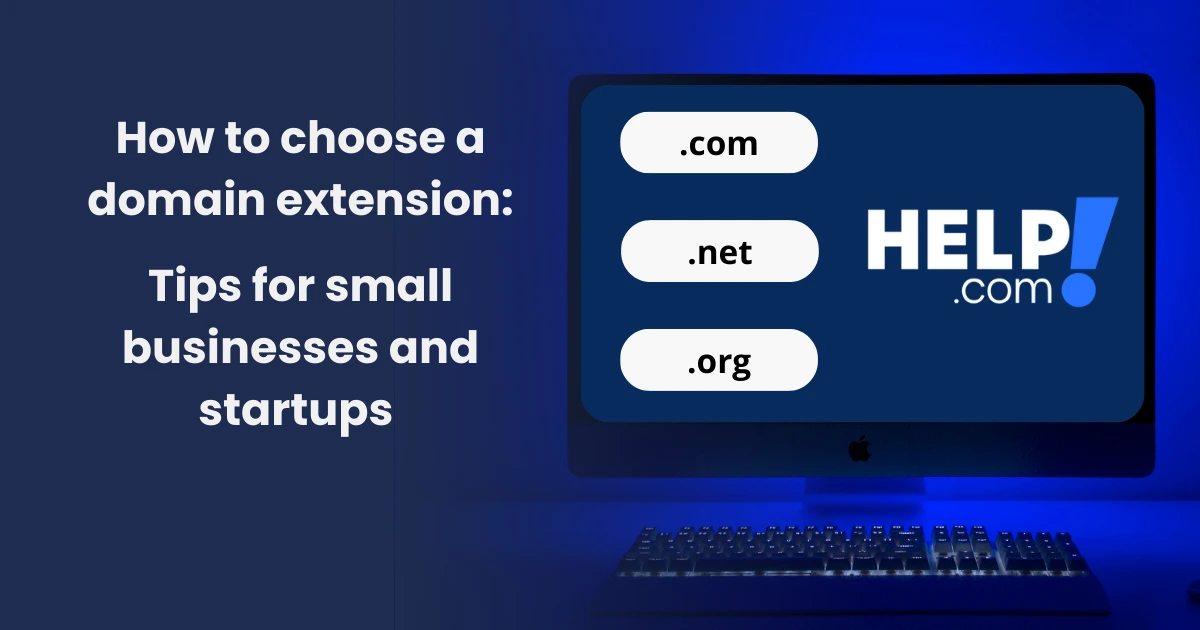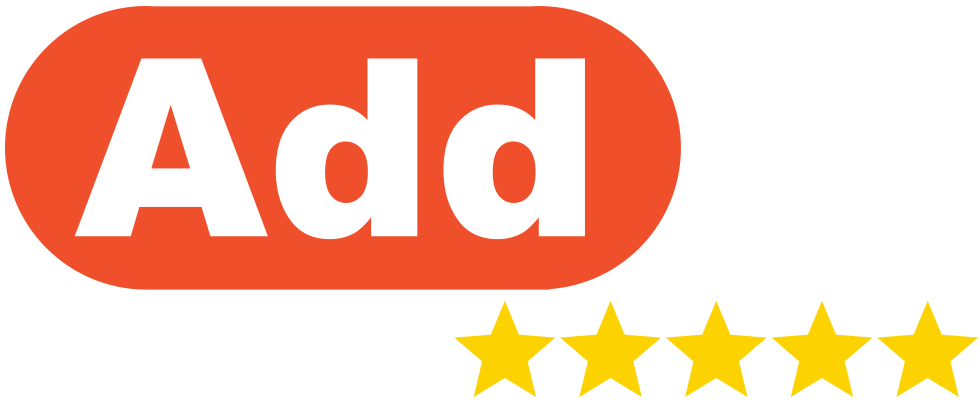
What is a domain extension, and why is it so important?
A domain extension forms part of a website’s URL and is the suffix that comes after your domain name. Top Level Domain (TLD) extensions categorize websites and provide additional information to your customers by honing in on your services and location.
There are many domain extensions, and some, like .com, have significantly risen in popularity over the years. However, other TLDs are gaining traction as trendy alternatives, so knowing how to choose a custom domain extension can dramatically impact how the public perceives your business.
Domain name extension list: A guide to available options
TLDs (Top-Level Domains) are the highest level in the domain name system (DNS) hierarchy. They are categorized into three main types:
- gTLDs (Generic Top-Level Domains)
These are common and not restricted to any specific country or organization.- .com
- .org
- .net
- .tech
- sTLDs (Sponsored Top-Level Domains)
These are specialized TLDs controlled by private organizations or entities with specific requirements.- .gov (U.S. government)
- .edu (educational institutions)
- .mil (U.S. military)
- .museum (museums)
- ccTLDs (Country Code Top-Level Domains)
These represent specific countries or territories, typically two-letter codes.- .us (United States)
- .uk (United Kingdom)
- .ca (Canada)
- .de (Germany)
Why choose a .com domain?
.com is still considered the most popular TLD worldwide and generally indicates a commercial business. It is currently the most recognized and trusted extension, so it is good to use as a default choice with your ideal domain name.
- .co is an extension for various companies and is great for global businesses. It is an alternative if the .com option is unavailable.
- .org is typically used for non-commercial, not-for-profit organizations.
- .edu is perfect for educational establishments.
- .gov is often best for government sectors.
- .info is just as it sounds – perfect for information-based sites.
- .biz – a slang word for business that appeals to non-corporate companies.
- .name is ideal for businesses or creative enterprises with a specific personal name.
- .me is similarly suitable for freelancers or professional services consultants.
What is a .io domain extension?
Formerly, the .net and .tech extensions were predominantly used for technology domains, but the .io extension, which stands for input/output, has made its debut. More start-up businesses, technology, gaming, software, and web development companies are using it and getting extra creative by ‘hacking’ their extensions to incorporate their use within the brand name.
Help.com’s AI domain name generator is a valuable tool for exploring creative and available domains!
Best domain extension for SEO: Does it matter?

The best domain extensions (TLDs) for SEO depend on business goals, industry, and target audience. Technically, Google doesn’t prioritize one extension over the other, but user preference and site credibility can influence search results and ultimately impact click-through rates.
- For global SEO, .com is still the most recognized TLD and, therefore, the most trusted by the public. However, .net and .org are strong alternatives.
- Country-specific TLDs—such as .us, .uk, .ca, and .au—rank higher for searches in their respective regions, so if you are targeting a specific audience within that location, using a country-specific TLD can boost local SEO.
- High-authority sites with .edu and .gov TLDs often rank well for SEO because they are perceived as trustworthy and tend to use many backlinks.
- TLDs such as .blog or .online may not gain as much trust as others, but an e-commerce store using .shop can help with branding awareness. TLDs such as .biz or .info may appear spammy and suspicious if users have experienced low-quality content on sites with these extensions.
If users avoid clicking on certain TLDs, Google may infer that they are less relevant, affecting their position in search results. Similarly, if a domain name is too long and uses a less familiar TLD, this may affect branding as users can’t easily recall it, leading to fewer click-throughs and influencing how Google tracks the website for relevance.
What are sTLDs (Sponsored Top-Level Domains)?
Sponsored Top Level Domains sTLDs are used for specific purposes and managed by ICANN, the official registrar. Sometimes, sponsored TLDs belong to specific communities, professional governing bodies, or geographical locations. The sponsors are responsible for developing policies and providing transparent and accountable operations for the betterment of Internet users. Examples include:
- .asia – sponsored by DotAsia Organisation
- .edu – sponsored by US EDUCAUSE
- .gov – sponsored by the US General Services Administration
- .int – sponsored by IANA
- .jobs – sponsored by the Society of Human Resource Management
- .museum – sponsored by Museum Domain Management Association
Here is a round-up of what to consider when choosing your domain!
Brandability
Your domain name and your extension should be easy to remember and brandable. Avoid hyphens and lengthy or complex domain extensions that are difficult to spell or pronounce. The goal is to establish trust and credibility.
Search Engine Optimization (SEO)
Some domain extensions can have a slight impact on your search engine rankings. For example, .com domains are generally more authoritative than other extensions and encourage user click-through.
Cost
Domain extensions can vary in price, so it’s essential to consider the cost when deciding on the best one for your needs. .com extensions are popular and sometimes more expensive, although paying extra might be worth it.
Availability and competition
Not all domain extensions are available for registration. Some domain extensions are reserved for specific purposes, while others have already been taken. Using a domain broker to help you secure your best domain can be helpful. Sometimes, the scarcity of domain names can force you to compromise on your ideal domain name with a .com extension, leading you to consider less common extensions.
Registration and Renewal Fees
Once you have selected your domain name, you must pay for a one-off registration fee and annual renewal costs. Reputable providers should send annual renewal notifications.
Trademark and Intellectual Property Issues
Ensure your domain name doesn’t infringe on existing trademarks, which can lead to legal disputes and financial penalties.
How a domain broker helps secure a domain name
Domain broking is the business of buying and selling domain names. Domain brokers act as intermediaries between buyers and sellers, facilitating transactions and ensuring a smooth transfer of ownership. They assist buyers in finding suitable domain names that meet their specific requirements and help sellers maximize the value of their domain assets.
While anyone can buy and sell domain names, domain brokers offer several advantages:
- Expertise and Knowledge: Domain brokers have a deep understanding of the domain market, including pricing trends, domain valuation, and legal considerations. They can provide valuable insights and advice to both buyers and sellers.
- Networking and Connections: Domain brokers have established networks and connections within the domain industry. They can access a wide range of domain names, including those not publicly listed for sale.
- Negotiation and Deal Structuring: Domain brokers are skilled negotiators who can help clients secure the best possible deals. They can also assist in structuring transactions, such as escrow arrangements and payment plans.
- Legal and Technical Support: Domain brokers can provide legal and technical support, ensuring all transactions comply with relevant laws and regulations. They can also assist with domain transfers, DNS management, and other technical aspects of domain ownership.
Domain brokers typically charge a commission on successful transactions. The commission rates vary depending on the broker and the domain name’s value. Some brokers also offer additional services like domain appraisal, portfolio management, and brand protection.
Help.com helps businesses easily navigate the domain name, registration, and web hosting process.
Frequently Asked Questions
What is a restricted domain?
A restricted TLD is reserved for a specific person or entity that matches particular criteria. Some generic and country-code TLDs are restricted, such as NYC, which is reserved for New York City and requires a valid city address when registering.
What is the difference between gTLD, ccTLD, and sTLD extensions?
gTLDs are generic top-level domains most commonly used worldwide by businesses and organizations. They are not restricted by industry or location requirements.ccTLD stands for country code top-level geographical and country-specific domain, whereas sTLDs are sponsored, regulated, and restricted for specific uses.
Should I hyphenate my domain name?
Help.com does not recommend using a hyphen in your domain name because it makes it more difficult for the user to enter the name into a search browser and creates opportunities for misspelling.
Does a domain extension affect SEO?
A domain extension alone does not affect SEO; user interaction does. If potential customers perceive your domain name and extension as untrustworthy or unreliable, they may not click through to your website.
What domain extension should I use?
Choosing the right domain name and extension depends on your brand and target audience, as well as your industry and location. Using Help.com’s AI domain name generator or Above.com’s brokering services will help you secure the best domain name swiftly and securely.




